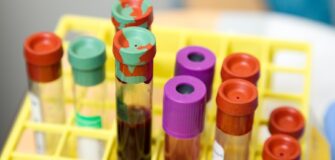Social Futures come up with new ways to welcome children to the NDIS
Share
Children with a disability can join the National Insurance Disability Scheme (NDIS) upon turning 7 years old, and Social Futures, which delivers the NDIS in much of regional New South Wales, has come up with new ways to make the move as easy as possible.
Social Futures has appointed a new Early Childhood Transition Manager, Natalie Tynan, who welcomes families and shows them how the NDIS can support their children to grow and flourish.
“When it comes to children, early intervention and provision of services such as speech and occupational therapy can reduce the ongoing impact of the disability throughout the person’s life,” Natalie said.
She also said that NDIS is there to ensure that the child gets what they need so that they can grow, reach their potential and do amazing things.
Social Futures is an NDIS Partner in the Community – a community-based organisation that works with the National Disability Insurance Agency to coordinate the scheme in the local area. For most NDIS participants in this region, Social Futures is their main point of contact for the NDIS.
“Social Futures works with people to identify the NDIS support they need to achieve goals in many areas of their life,” Natalie said.
“This includes individual growth and happiness, and also being able to fully participate in their community, for example playing a sport, finding a meaningful job, or joining a local organisation.”
Tynan said children under 7 are first delivered services and support through an NDIS Early Childhood Partner, then, if needed, transition to the NDIS, delivered by Social Futures in much of regional NSW.
Some of the families have been with an early-childhood service provider since their child was born, making it feel like a big step moving on to NDIS afterwards. Tynan, however, reassures families that they are to give support and will be working closely with them to make the transition process as smooth and informed as possible.
“We have a warm conversation with the family to welcome them, check in to see how it is all going and answer any questions.
“If the family requests, we can have an in-person or online meeting to support them in their understanding of the NDIS.”
Natalie said one of the strengths of the NDIS is that it offers choice and control over how and when families receive NDIS support because every family is different.
“Social Futures and the family produce a written agreement – a plan – for the child. Every plan is different because every child is different,” she said.
“Our team asks questions because we want to understand your families’ needs and aspirations and provide the support to meet those.”
Natalie is also planning on introducing webinar information sessions soon to provide a forum for parents to have their questions answered and learn more about the NDIS.
“A great outcome would be for families to make some connections with other families in those webinars,” she said. “That social connection is wonderful for families.”
Natalie has spent 17 years working with children with disabilities, and her work makes it rewarding because children excel at exceeding people’s expectations.
“I have seen the positive difference the NDIS makes to the lives of children and their families, and I am grateful to be able to be a part of the journey with them in this role at Social Futures.
“I really enjoy listening to families talking about their children, often the more they talk, the more they realise just how far they have come.”
Ritchelle is a Content Producer for Healthcare Channel, Australia’s premier resource of information for healthcare.












